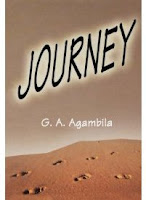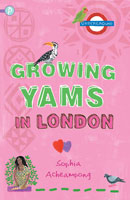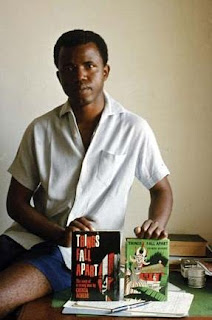198. Journey by G. A. Agambila

Journey (Sub-Saharan Publishers, 2006; 304) by G.A. Agambila is a novel about life and the uncertainties and mystery surrounding it. It is also about swimming against the cold currents of penury and traditions whilst showing the developmental gap between the Northern and Southern part of the country, Ghana. This developmental gap is no fiction and the story of the North-South migration is a common one for most folks. The motif of the story could easily have been autobiographical as most students who completed their secondary education had to either come down south (to the University of Ghana located at Accra or University of Cape Coast located at Cape Coast) or stop over at Kumasi (at the Kwame Nkrumah University of Science and Technology), in the middle part of the country, if they wanted to further their education to the university level. It still is the case even though the northern sector now has a university. There is also, in this story, of teenage trysts and frivolity. ...









